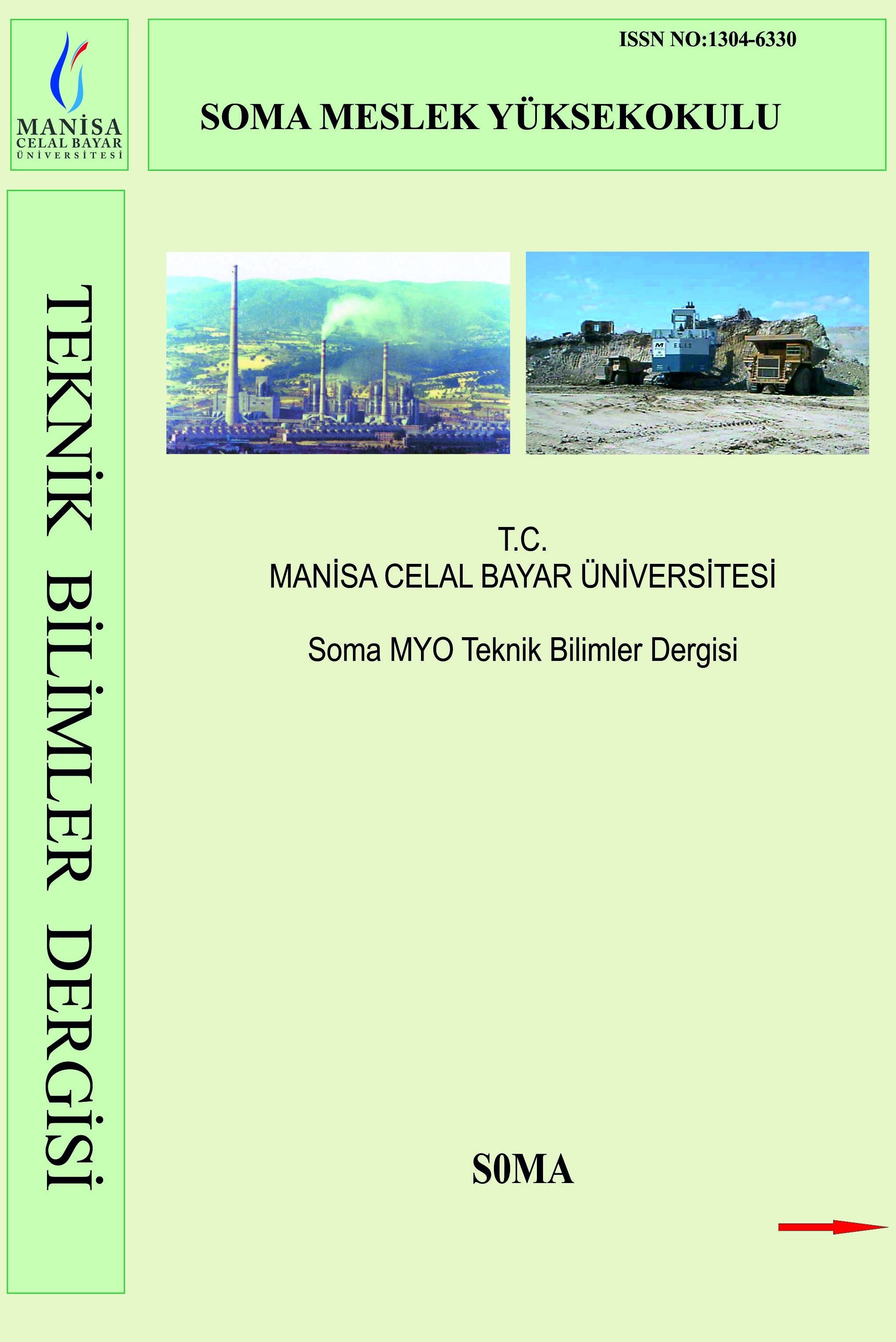DÜŞÜK GRAMAJLI ÇÖZGÜLÜ ÖRME HAVLULARIN HIZLI KURUMA ÖZELLİKLERİNİN KARŞILAŞTIRILMASI
Havlular genellikle 300 ile 900 gr/m2 aralığında üretilebilir ve genellikle yüksek su emme yeteneğine sahip olması ve yumuşak olması istenir. Yüksek gramajlı havlular daha fazla su emer, ancak yıkamak ve kurutmak için çok fazla zaman gerekir ki buda daha fazla enerji tüketimine neden olur. Bu çalışmada hafif gramajlı çözgülü örme havlular üretilmiş ve bu kumaşların kuruma özellikleri araştırılmış ve diğer orta gramajlı havlular ile karşılaştırılmıştır. Bu kumaşlar, %100 poliester, %90 pamuk - %10 poliester, %80 pamuk - %20 poliester, %50 pamuk - %50 poliester ve %100 pamuk oranlarında üretilmiştir. Numunelerin ıslanma ve kuruma özelliklerini belirlemek için iki su emicilik ve bir kuruma testi uygulanmıştır. Sonuçlar, tek tarafın kadife tek tarafı bukle havlular dışında hepsinin iyi su emicilik özelliği sergilediğini göstermiştir. Tüm çözgülü örme havlular polyester iplik içerdikleri için mükemmelden iyiye kuruma oranı özelliği göstermiştir. %100 poliester kumaşlar mükemmel kuruma oranı ve su emicilik özellikleri sergilemiştir. Böylece, bu kumaşların hızlı kuruyan bornozlar, plaj kıyafetleri ve benzer ürünlerde kullanılabilir olacağı ön görülmüştür.
Anahtar Kelimeler:
çözgülü örme, düşük gramajlı havlular, hızlı kuruma
THE COMPARISON OF QUICK DRYING CHARACTERISTICS OF LIGHT-WEIGHT WARP KNITTED TOWELS
Towels can be produced in the range of 300 to 900 g/m2 weight and they are generally desired to have high water absorption ability and softness. Although high weighted towels absorb more water, they need too much time for washing and drying processes which cause more energy consumption. Light-weighted towels are washed and dried easily compared to their high weighted counterparts. In this study, light weight warp knitted towels were produced and their quick drying characteristics were investigated and compared to the other medium weighted towels. These fabrics had different fiber blend ratios such as 100% polyester (PES), 90% cotton (CO)-10% polyester (PES), 80% cotton (CO)-20% polyester (PES), 50% cotton (CO)-50% polyester (PES), and 100% cotton. Two different liquid absorbency measurement tests and one drying rate test were carried out to determine the wetting and drying performance properties of warp knitted towel samples. The results exhibit that, all types of towels exhibited good liquid absorption properties except one sided velvet and one sided terry towel types. All warp knitted towels displayed excellent to good drying rates due to their polyester yarn content. 100% polyester fabrics displayed excellent drying rates and excellent liquid absorption properties. Thus, these fabrics can be used as quick drying bathrobes, beach wear and any other applicable product design.
Keywords:
warp knitting, light-weight towels, quick drying,
___
- Petrulyte, Salvinija, and Renata Baltakyte, (2008). Investigation into the wetting phenomenon of terry fabrics. Fibres & Textiles in Eastern Europe, 16.4, 62-66.
- Singh, Jitendra Pratap, and Swadesh Verma, 2016, Woven Terry Fabrics: Manufacturing and Quality Management. Woodhead Publishing,
- Durur, G., & Öner, E. (2013). The Comfort Properties of the Terry Towels Made of Cotton and Polypropylene Yarns, Journal of Engineered Fabrics & Fibers (JEFF), 8(2)
- Kakde, M. V., More, H., Magarwadia, B., & Kejkar, V, (2017), Effect of Pile Density on Physical Properties of Terry Towel Fabric.
- Holland, V. B. (1943). A comparison of methods for the determination of water absorbency by terry towels. Textile Recorder, 61, 38-42.
- Swani, N. M., Hari, P. K., & Anandjiwala, R. (1984). Performance Properties of Terry Towels Made from Open-end and Ring-spun Yarns.
- Lord, P. R. (1974). A comparison of the performance of open-end and ring spun yarns in terry toweling. Textile Research Journal, 44(7), 516-522.
- Sekerden, F. (2012). Effect of pile yarn type on absorbency, stiffness, and abrasion resistance of Bamboo/Cotton and cotton terry towels. Wood and Fiber Science, 44(2), 189-195.
- Zervent, B., & KoC, E. (2006). An Experimental Approach on the Performance of Towels-Part II. Degree of Hydrophility and Dimensional Variation. Fibres and Textiles in Eastern Europe, 14(2), 64.
- Ramachandran, M. (2015). Application of Natural Fibres in Terry Towel Manufacturing. International Journal on Textile Engineering and Processes, 1(1), 87-91.
- Hanes, Leslie. Wicking quick-dry anti-microbial towel. U.S. Patent Application No 11/503,738, 2006.
- Int, 2017, https://www.beltatex.com/faydali-bilgiler/kaliteli-havlu-nasil-anlasilir
- Waite, Carmen Lee. "Absorbent towel having quick-dry properties." U.S. Patent No. 6,062,272. 16 May 2000.
- Uyanik, S., Ünal, B. Z., & Çelik, N. (2013). Farklı Büküm Tiplerine Sahip Hav İpliklerinin Havlu Performans Özelliklerine Etkisi.
- Goksel, I., (1987). Havlu Dokuma Kumaşların Yapısı, Tekstil ve Teknik Dergisi, S:30-36
- Bozgeyik, K., (1991). Havlularla İlgili Kalitatif Bir Araştırma, Yüksek Lisans Tezi, Ege Üniversitesi, Fen Bilimleri Enstitüsü, Tekstil Mühendisliği Anabilim Dalı, İzmir, 1991.
- Karahan, M, Eren, R., (2006). Experimental Investigation of the Effect of Fabric Parameters on Static Water Absorption in Terry Fabrics, Fibres& Textiles in Eastern Europe, April /June, Vol: 14, No: 2 (56) P: 59-63
- Karahan,M., (2007). Experimental Investigation of the Effect of Fabric Construction on Dynamic Water Absorption in Terry Fabrics, Fibres& Textiles in Eastern Europe, July/ September, Vol: 15, No: 3 (62), P: 74-80,
- Ala, D.M, (2017), Investigaiton of wetting and rying properties of cotton woven fabrics, Ulusal Çukurova Tekstil Kongresi, UCTEK’2017, 28-29 Eylül 2017, Adana, Türkiye
- ISSN: 1304-6330
- Başlangıç: 2004
- Yayıncı: Celal Bayar Üniversitesi
Sayıdaki Diğer Makaleler
DÜŞÜK GRAMAJLI ÇÖZGÜLÜ ÖRME HAVLULARIN HIZLI KURUMA ÖZELLİKLERİNİN KARŞILAŞTIRILMASI
Fatma Filiz YILDIRIM, Esra GELGEÇ, Abdullah Can DENİZ, Mustafa ÇÖREKCİOĞLU, Sema PALAMUTÇU
Gazican ÖZKAN, Bahadır UYULGAN
Göksel Tokgönül, Gediz Kulaç, Çiler Şenocak, Emine Başalan
MOLEKÜLER KONTROL VE YÜZEY MODİFİKASYONU İLE İNORGANİK ORGANİK HİBRİT, FONKSİYONEL NANOMALZEMELER
BOR BİLEŞİKLERİ PAMUKLU KUMAŞLARIN GÜÇ TUTUŞURLUK ÖZELLİKLERİNİN GELİŞTİRİLMESİ
Esra GELGEÇ, Fatma Filiz YILDIRIM, Şaban YUMRU, Mustafa ÇÖREKCİOĞLU
